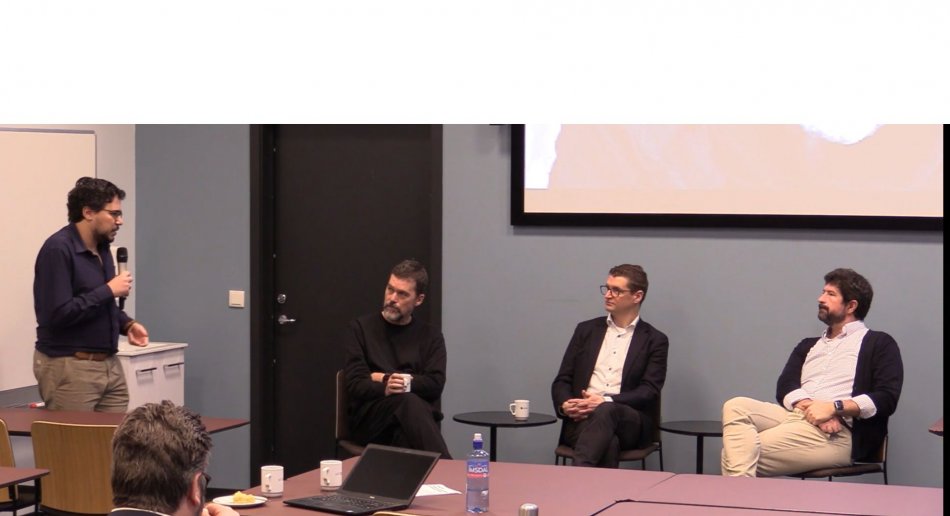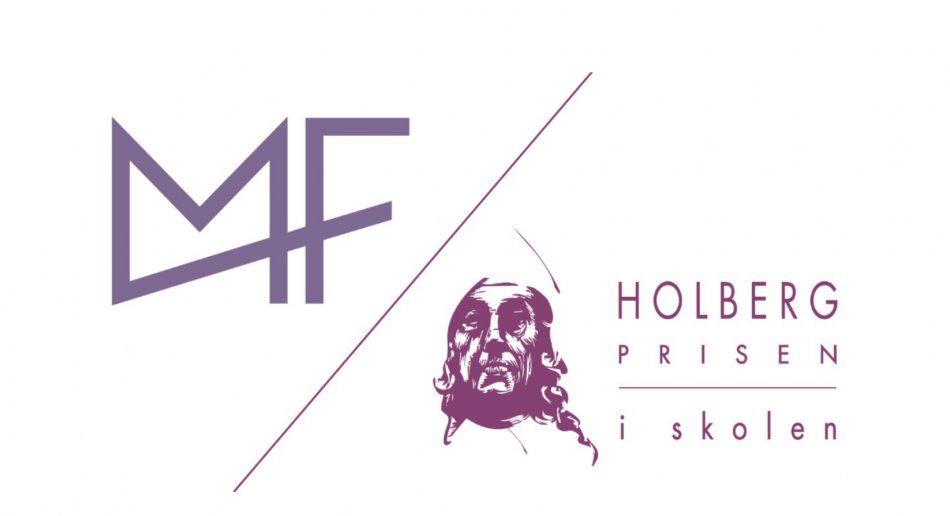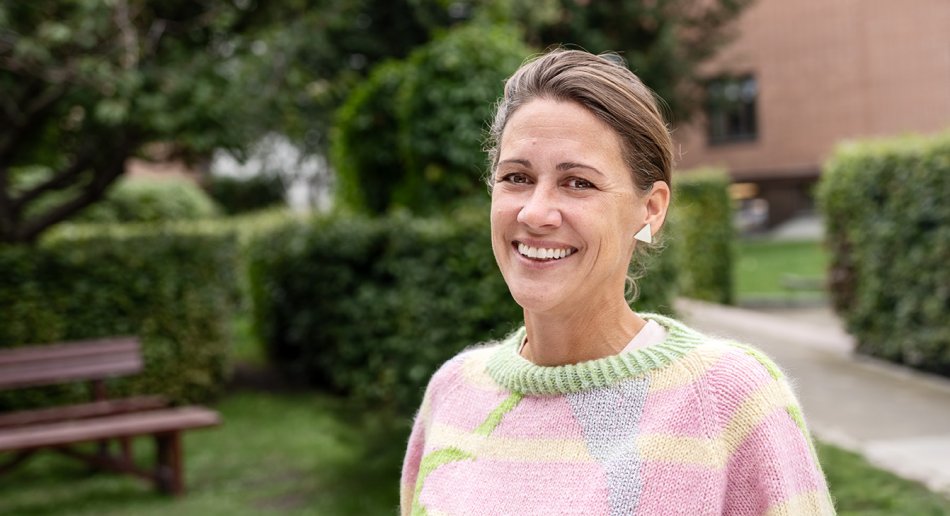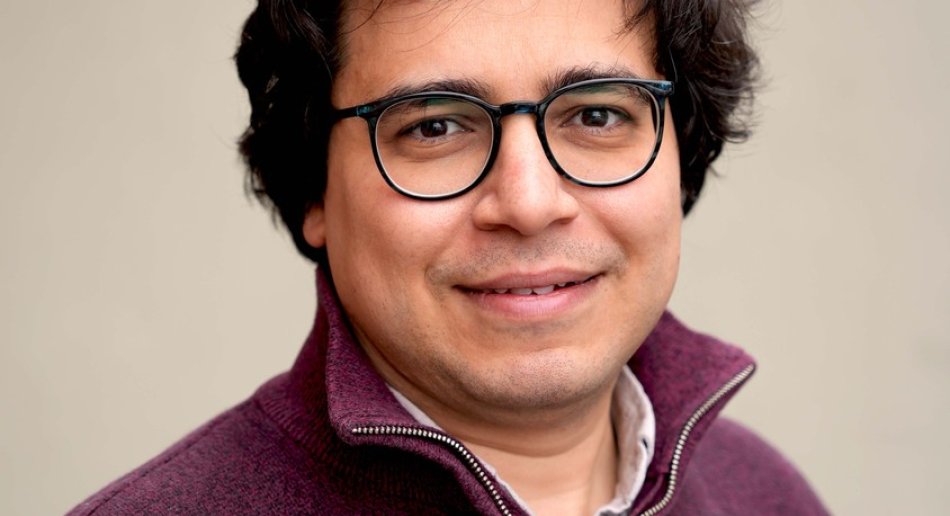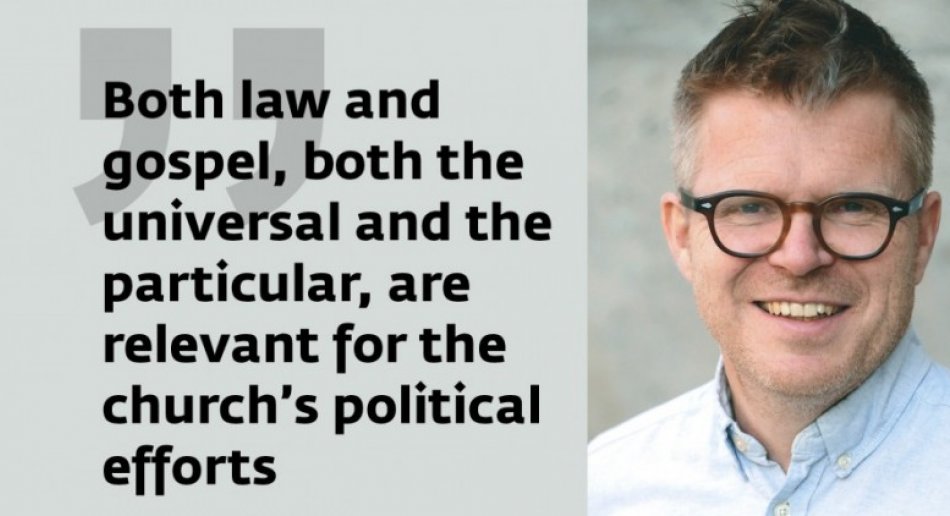
What language should the church use?
Associate professor Tron Fagermoen studies what type of language the church should use when participating in public debate.
Tron Fagermoen is Associate Professor of Practical Theology and head of the master’s program of Diaconia and Social Practice at MF. His research interests are situated in the intersection of diaconia, ecclesiology and ethics.
(translated by Andrew D. Wergeland)
– Should the church use ordinary language and, as much as possible, rational and secular arguments? Should it express itself in a religious language and boldly utilize narratives and metaphors from the Christian faith-universe? Or are these false alternatives?, Fagermoen asks in his research.
Fagermoen, who has diaconia (Christian social practice) and ecclesiology as his research fields, is currently working on an article. In it, he argues that the writings of the Swedish theologian Gustaf Wingren (1910 – 2000) are a good starting point for discussing these questions.
Universal and Particular
– Wingren is a part of what is often called Scandinavian-Lutheran creation theology. This is a tradion which emphasizes that what is unique or distinctive in Christianity must be understood on the basis of God's universal work with the world as creator. The universal and the particular, the human and the Christian, are, in other words, dialectically related to each other.
– It's not about finding the right balance between these entities, such as Wingren sometimes is read. Rather, it's about admitting that the opposition between human and Christian, and, for that matter, between secular and religious, from a Scandinavian-Lutheran perspective is a false opposition, Fagermoen explains.
He believes that a church which seeks inspiration from this way of thinking should develop a form of dialectical bilingualism, where common and specifically Christian perspectives are not put into competition with one another.
– Such bilingualism recognizes that the church doesn't have any privileged insight when it comes to political issues. The law is in effect everywhere and can be recognized independent of faith. At the same time, this does not deny that the gospel can also have a renewing effect and contribute to expanding political imagination. The gospel has social effects, as Wingren puts it. Therefore, both law and gospel, both the universal and the particular, are relevant for the church's political efforts, Fagermoen argues.
A Continually Relevant Question
The quetion of how the church should express itself on matters of politics is not a new one. In a Lutheran context, this has been high on the agenda for a long time.
– Not the least as a result of German theologians' compliancy with the Nazi regime during World War II, Lutheran theology has given much attention to the question of the church's political mandate, says Fagermoen. He points out that the challenge is continually relevant, and that the church's participation in current political debate is often problematized.
– While some accuse the church of mixing religion and politics when it makes statements on, for example, refugee policies or environmental policies, others are dissatisfied because it doesn't speak with a more explicitly religious language, according to him. Because of this, Fagermoen believes that theological reflection about the language of the church in the public sphere is still necessary.
Visible Religion in a Post-secular Society
– Questions related to how the church ought to express itself in political discussions are in a wider context made relevant by the challenges made in the last few years to the so-called Secularization Thesis. Religion is not – at least not unambiguously – about to disappear from the public sphere. This has led several political philosophers to claim that we now find ourselves in a post-secular condition where the processes of secularization are still in effect, but where there also can be found signs of "the new visibility of religion", Fagermoen explains.
The idea of a post-secular condition entails a new interest for the contribution of religious voices in public debate.
– My results, or my argumentation, is in effect that Scandinavian creation theology can contribute important resources to the development of a language for the church to use in the public sphere when expressing itself within the context of post-secular society. A language that bands together the universal and the particular, human and Christian.
Research news
